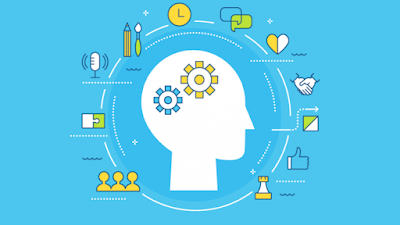Important Skills For Web Designer
Technical Skills
Here's a medley of top skills to help you become a design expert, no matter where you're at in your career. Web designing naturally includes tasks that require programming skills and knowledge in site usability. These “skills” are a must-have for any web designer or developer.
HTML
HyperText Markup Language(HTML) serves as the foundation for almost all websites and remains the most vital skill to learn for web design. As a web designer, you should be able to put headlines(titles), footers, paragraphs, images and graphics in a website. Therefore, having skills in HTML will go a long way in helping you complete your projects or sites.
CSS
Cascading Style Sheets is a style sheet language used for format HTML. CSS enhances the look of the website and help you adjust colours, change fonts styles, spacing, images and background of the web page. It enables you to implement the creativity you have into the site you are designing.
JavaScript
JavaScript is the world's most popular programming language that handles the interactive components of a website. It complements HTML well by powering videos, search bars, and other elements.
Content Management Systems
Most modern websites are built on top of a content management system (CMS). While WordPress is the most popular, there are hundreds of CMSs out there. You don’t need to learn how to use all of them, but learning the basics of how they work and what they do, and then becoming proficient with the most popular one(s) is a good place to start.
Design Applications
Depending on the client’s needs, you might need experience in image processing programs such as Photoshop , Adobe After Effects, Adobe Illustrator, XD, Affinity Designer, and Figma are popular options, though other software exists.
Online Marketing
Search Engine Optimization (SEO) most important skill in online or digital marketing . web design and SEO are heavily connected. To secure new leads in the vast ocean of Google search results, a web designer may have to use keywords, improve page load speeds, image optimization and provide regular page updates to rank the site highly.
Responsive Design
Responsive web design is about creating web pages that look good on all the device like mobile phone, tablet, laptop and personal computer. It automatically adjust for all screen sizes. It includes optimizing the website to run well. Company sites must also be mobile-friendly, as many users browse on a smartphone, tablet or laptop nowadays. Web designers must accommodate their layouts to support a wide variety of screen sizes and resolutions.
User Experience
The user experience is everything today. UX aims to shape a person’s experience while engaging them and guiding them through the site. That is, you need to make the page enjoyable to use and navigate.
User Interface
UI focuses on specificity. Web pages, buttons, menus, and are all a part of UI. These elements guide an audience through a design for a smooth experience. These come together to form a consistent experience and a straight forward interface. Add a prompt and an obvious call to action.
Graphic design
graphic design is about creating visuals with longevity. Designing a website or a logo may be different design disciplines, but they’re both a part of branding sites. Graphic design skills will round out your skill set. Knowing how to create hand-drawn typography, custom illustrations, and other types of creative flourishes will enhance your web design work.
Attention to detail
Effective design is most important. Design choices like navigation, layout, and color scheme should be deliberate. Attention to detail should touch every part of a design.
Soft Skills
While technical skills are essential, the ideal web designer has a variety of soft skills to guarantee a successful project. Soft skills relate to how you work. Soft skills include interpersonal skills, communication skills, time management, and empathy, among others.
Communication Skills
Communication is a necessity for almost any business professional, but it’s important in web design. You’ll need to keep clients up-to-date on the progress of their projects and explain your creations. A designer must not only understand the goals of the business but also be able to convey their decisions to the client and explain why they contribute to the success of the website.
Interpersonal Skills
Web design is almost never a single-person job. You might have to talk with people who aren’t designers themselves and explain your vision of the project. You might talk with marketing to find out how to optimize the site for making conversions.
Project Management
Professional sites or Dynamic Sites take a long time to complete and often require regular revisions. You must understand how to start a project, make a plans and keep yourself aligned with the goals of a business throughout the process.
Minimizing Distractions
Whether the designer is hired or works freelance, keeping an eye on deadlines. Clearing distractions and making constructive use of company time ensures that costly last-minute rushes don’t happen This is also important thing of web designing.




Strong technical skills, creativity, and attention to detail are vital for web designers. Partnering with services like Hostever can provide the robust hosting needed for seamless web experiences.
ReplyDeleteTechnical Skills enable professionals to understand, create, and manage technology effectively. They’re essential for innovation, problem-solving, and career advancement. Enhance your skillset with switch free game , where learning drives success.
ReplyDelete